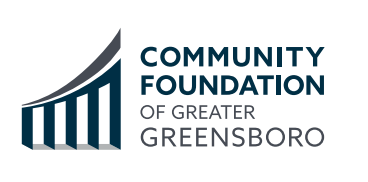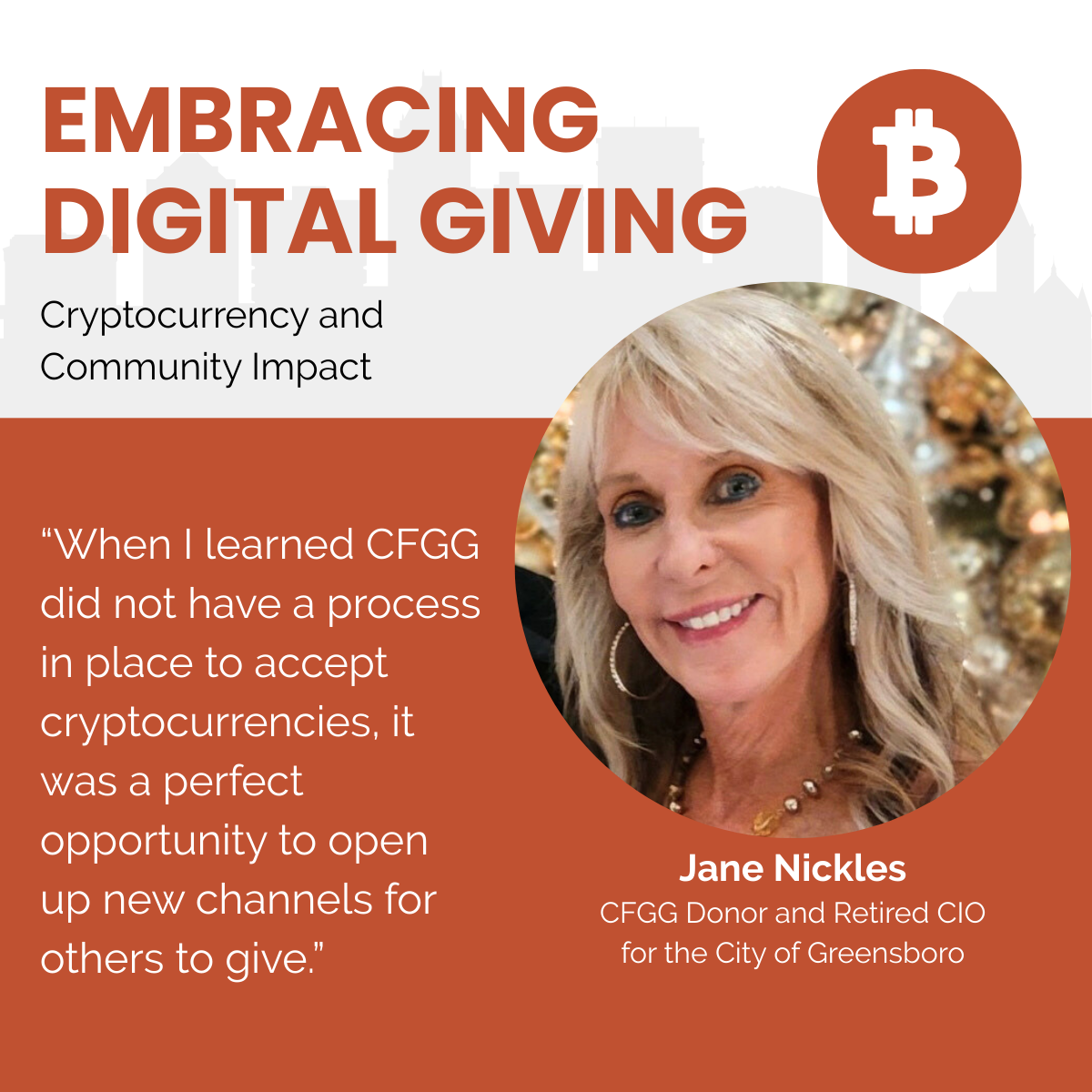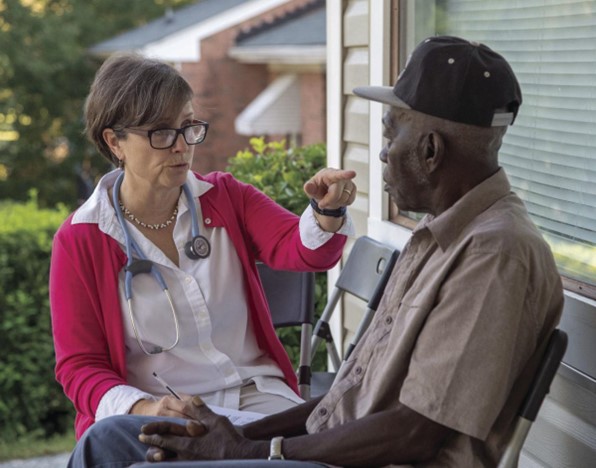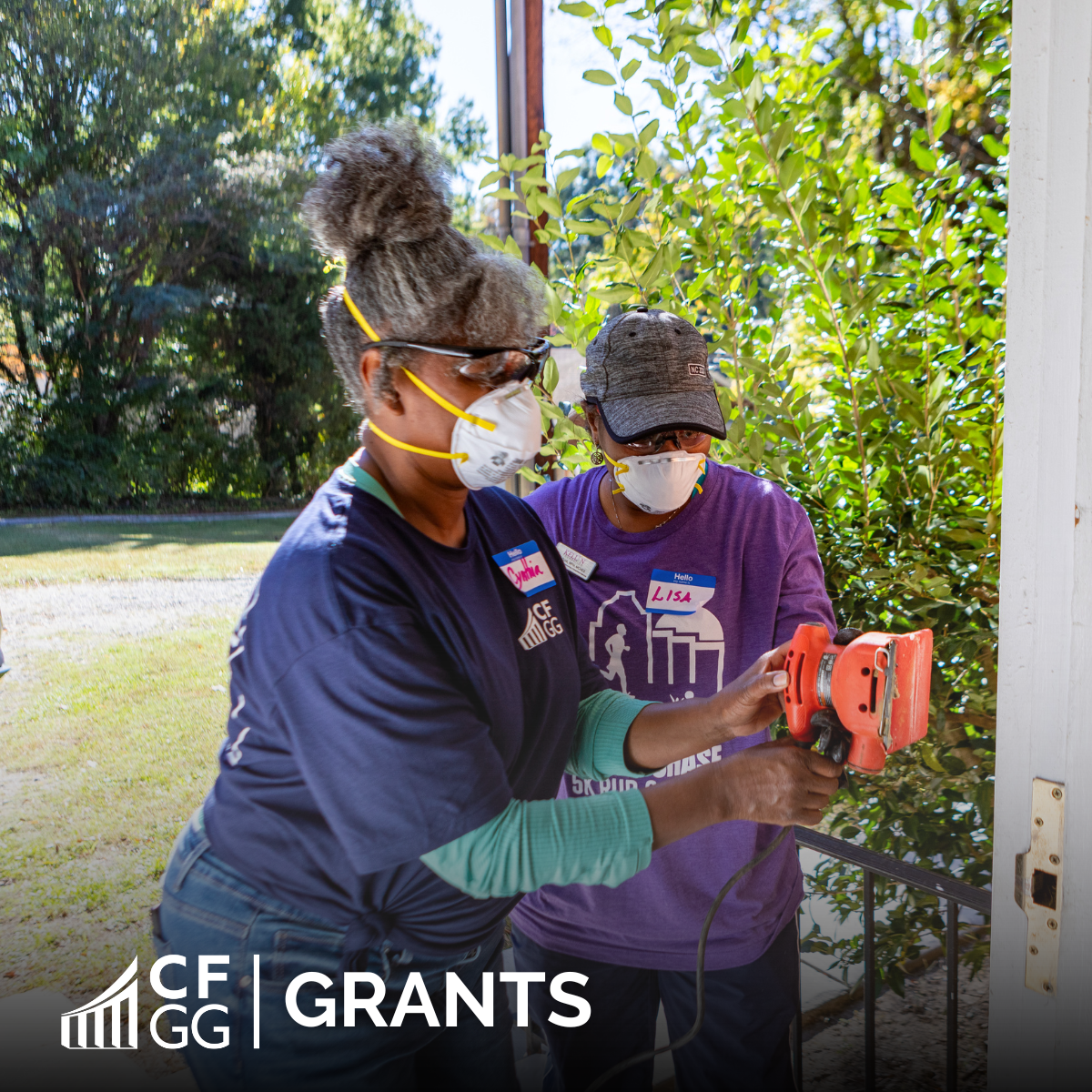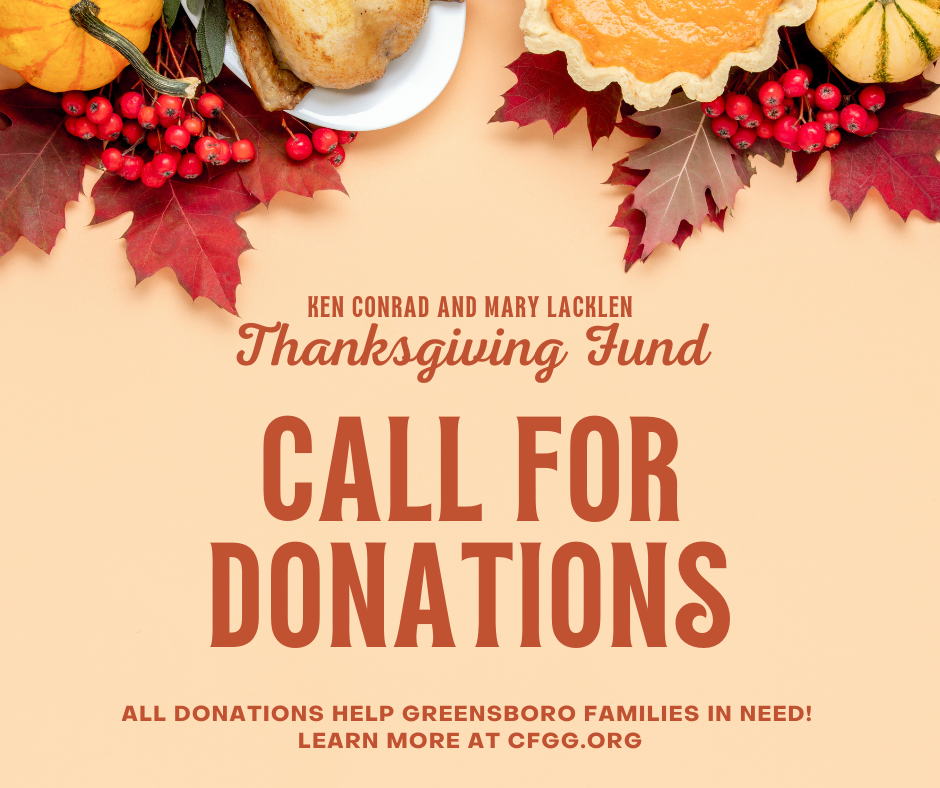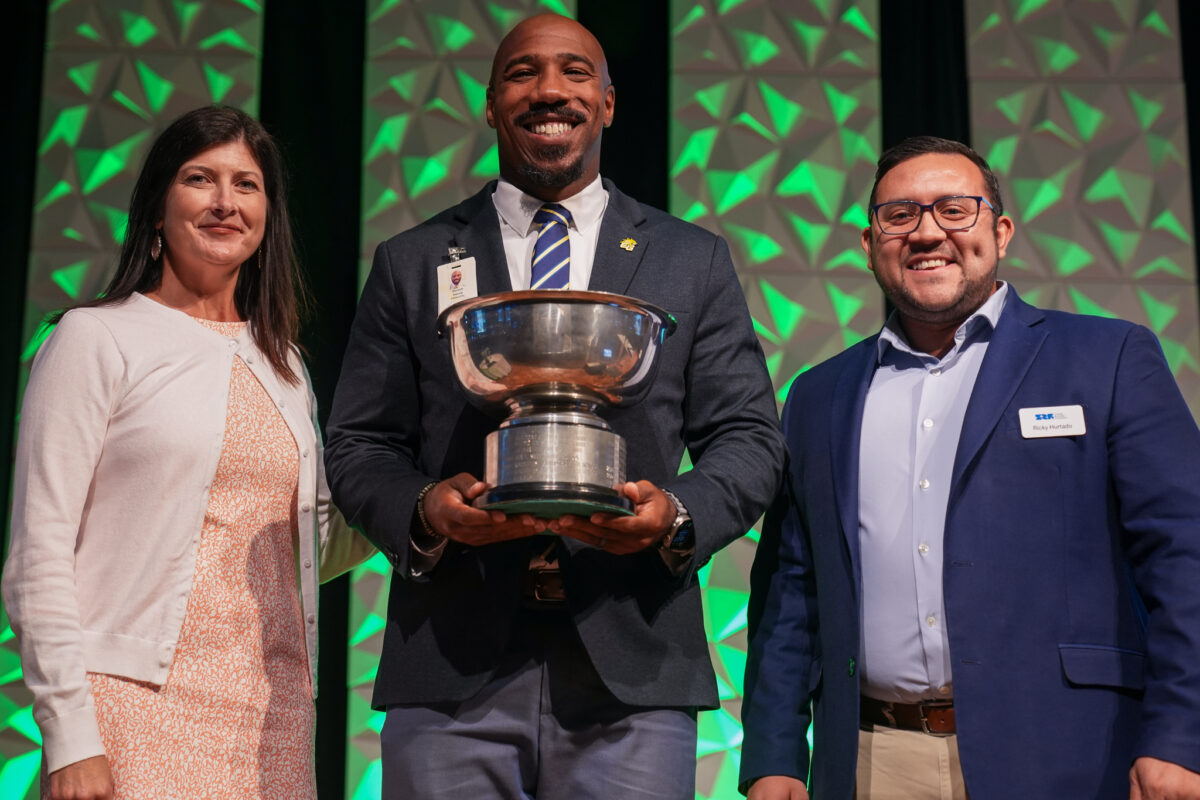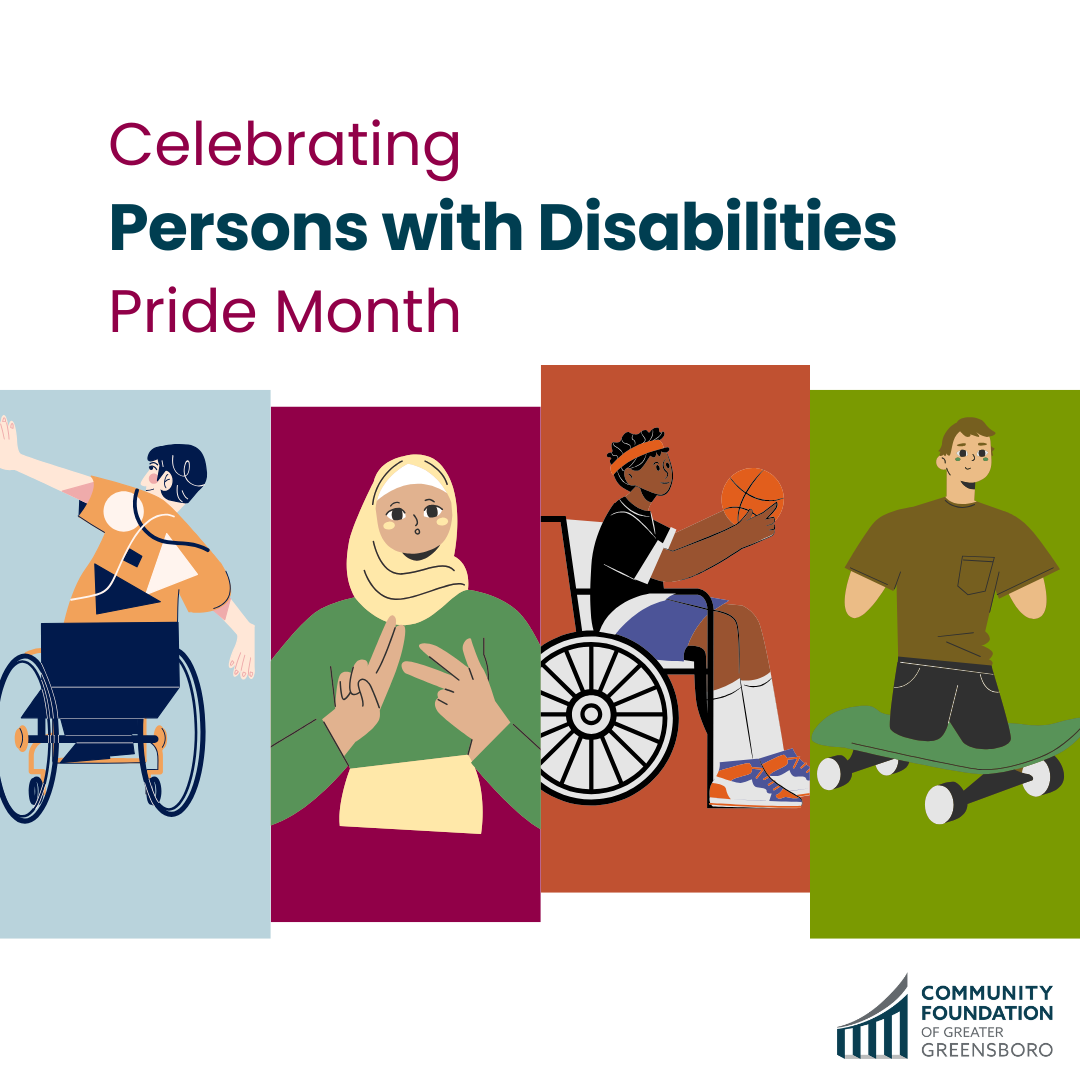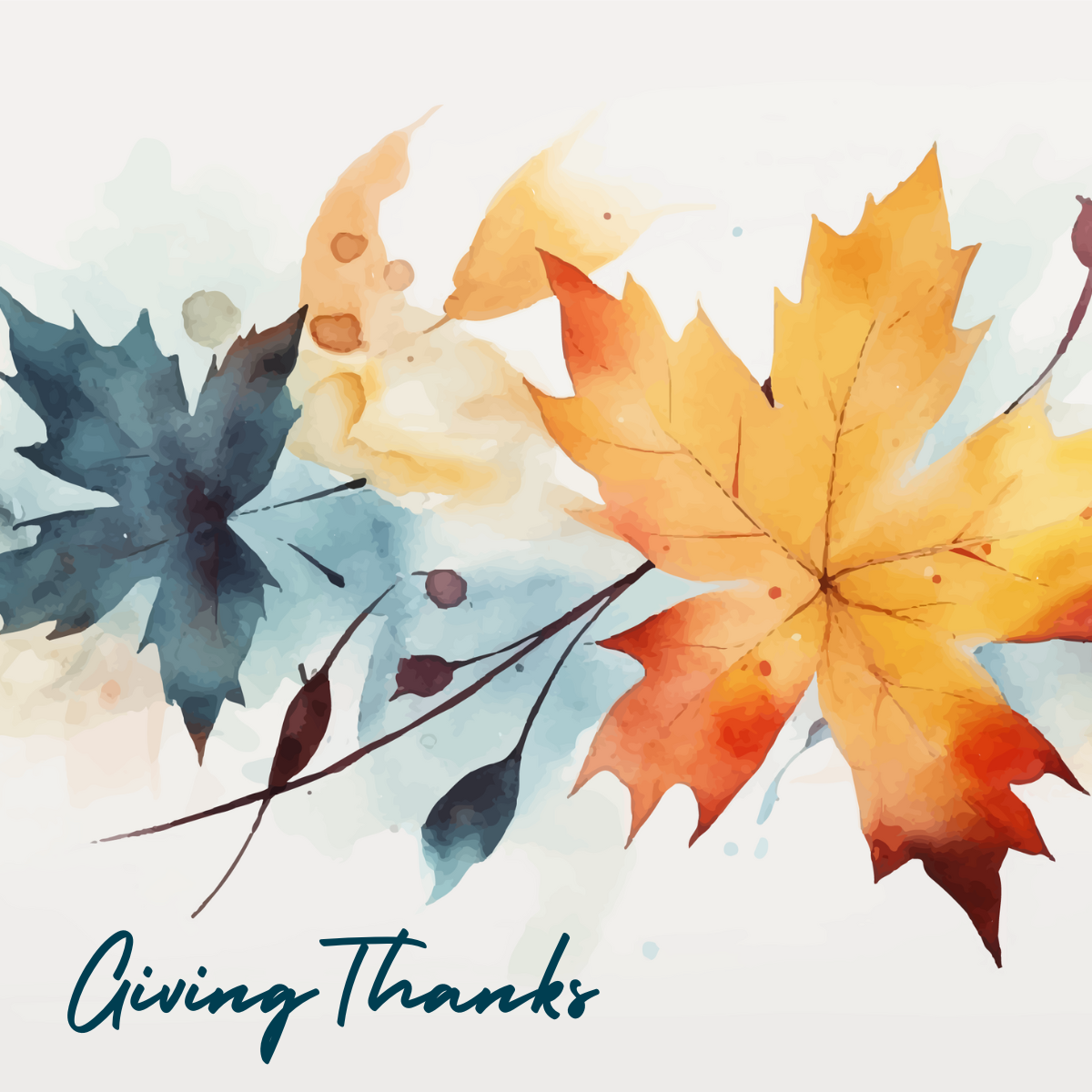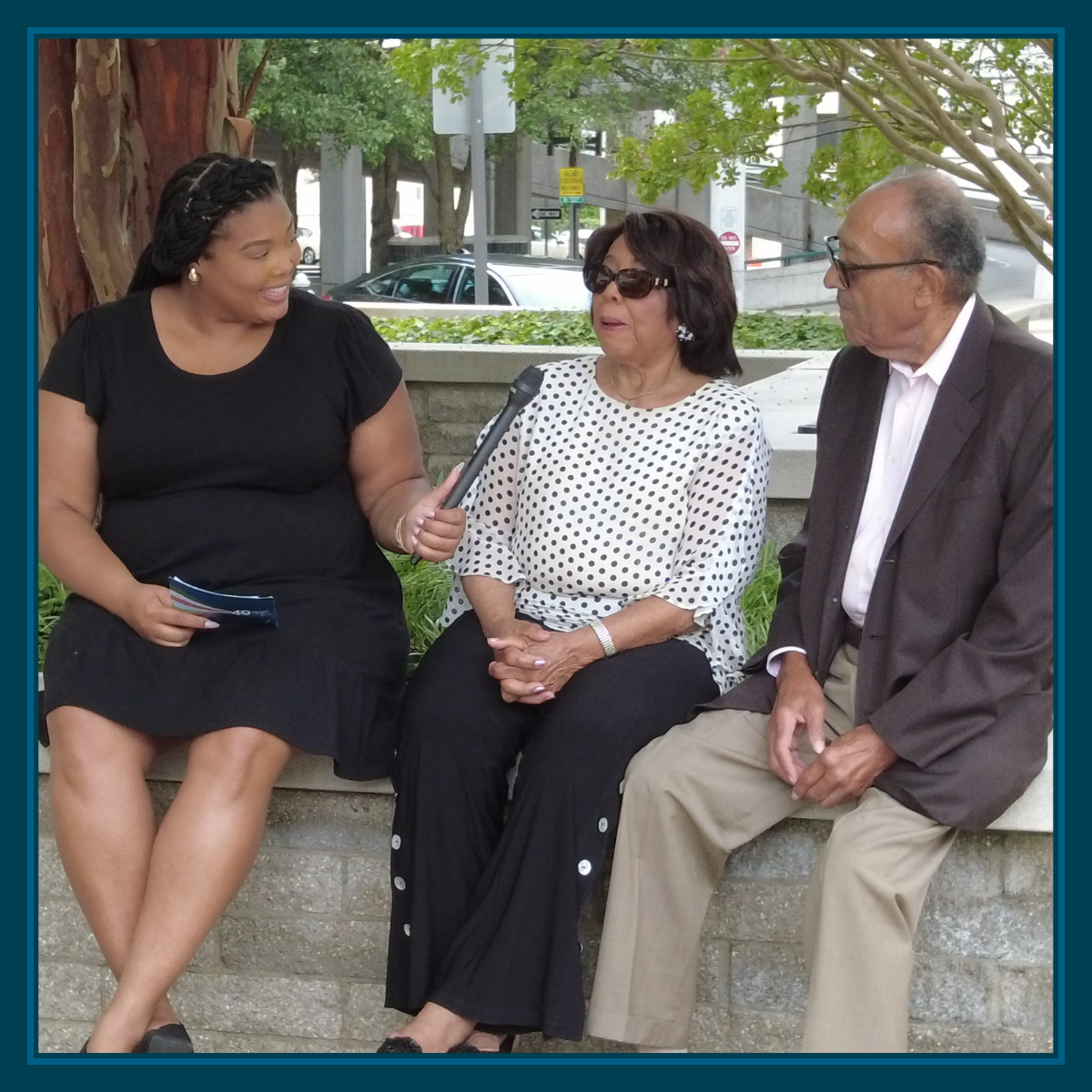Embracing Digital Giving: Cryptocurrency and Community Impact
Kabrina Shamburger
on
December 26, 2025
As technology continues to reshape the way we live and work, philanthropy is no exception—and the Community Foundation of Greater Greensboro (CFGG) is adapting to our donors’ needs.
“When I learned CFGG did not have a process in place to accept cryptocurrencies, it was a perfect opportunity to open up new channels for others to give,” said CFGG donor and retired CIO for the City of Greensboro, Jane Nickles. “As a technology professional, I am a believer in the power of digital currencies to modernize and create efficiencies in financial systems.”
Donating cryptocurrency can also provide significant tax advantages. For donors in the U.S., the IRS treats cryptocurrency as property for tax purposes. This means that when you donate Bitcoin or other digital assets to a qualified 501(c)(3) nonprofit such as CFGG, you may avoid paying capital gains tax on the donated amount while still claiming a charitable deduction. (Please remember to always consult your tax adviser for financial guidance.)
“I deeply appreciate CFGG’s work to facilitate a Bitcoin contribution and hope it will inspire additional contributions as digital currencies become more mainstream,” said Ms. Nickles. “This capability allows donors like me to leverage appreciated digital assets for community impact—fueling programs that create opportunity and improve quality of life for all residents.”
If you’re interested in making a cryptocurrency gift or learning more, contact Brian Graham at bgraham@cfgg.org, call 336.790.7518, or visit https://cfgg.org/cryptocurrency-donations/.
Your contribution can help shape a stronger, more connected community.
